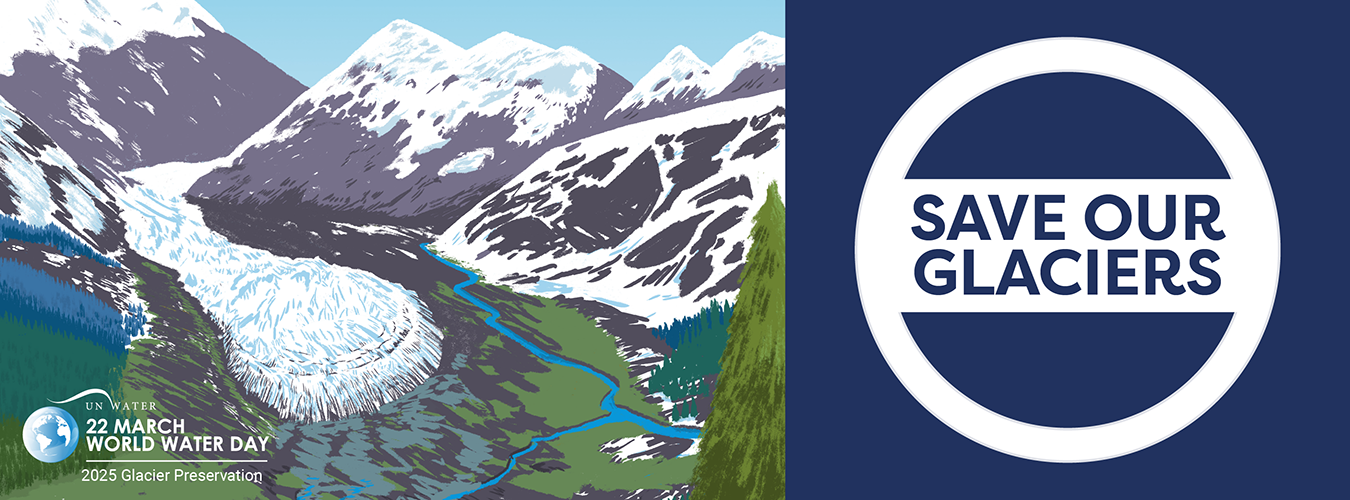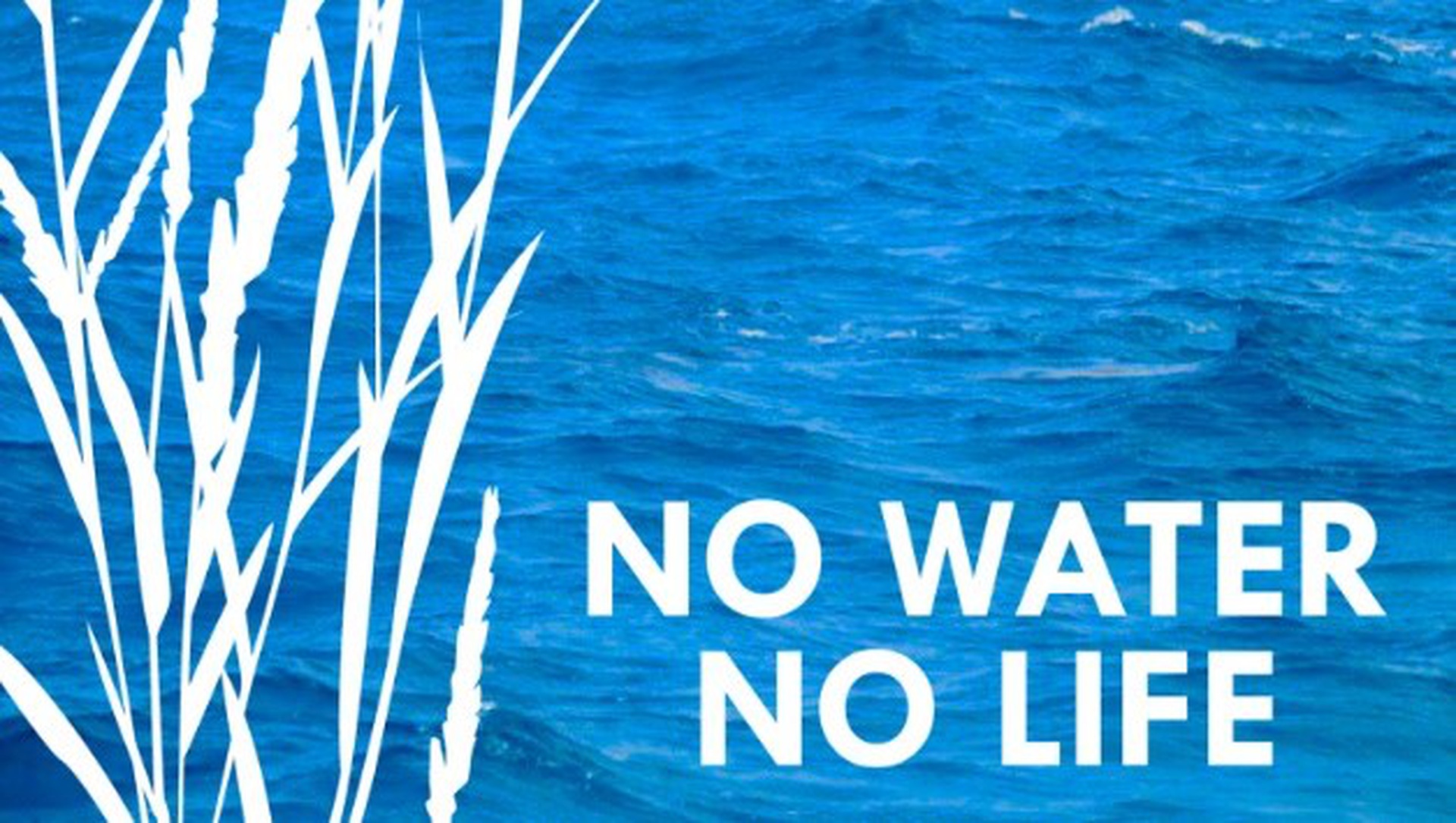N.B. On this day we also mourn the privatisation of our water which has always been the gift of love from our Mother Nature to nurture, nourish and sustain the entire web of life.

A photo by jplenio/via Pixabay
“Water is a great teacher that shows us how to move through the world with grace, ease, determination, and humility.”
If, only if, we could be wise and learn how to be like water and accordingly live our lives like water…
I am trying to imagine what the world would be like, if those who have abused, misused and privatised water and made it a tool of profit making, exploitation, plunder, pollution, and destruction, had studied wisdom traditions from the eastern cultures, traditions such as Taoism which counsels us to live our lives like water. This, as Parker J. Palmer* has noted, does not mean “go with the flow” passivity. Taoism is all about nonviolent action. It invites us to flow quietly but persistently around the obstacles that stand between us and the common good, wearing them down as a river erodes boulders.
Here are some words from the Taoist master Lao Tzu who names a few of the virtues that come from living “the watercourse way.” They won’t make you rich or famous. But they serve the common good, make life worth living, and help keep hope alive!
The best are like water…
The best, like water,
Benefit all and do not compete.
They dwell in lowly spots that everyone else scorns.
Putting others before themselves,
They find themselves in the foremost place
And come very near to the Tao.
In their dwelling, they love the earth;
In their heart, they love what is deep;
In personal relationships, they love kindness;
In their words, they love truth.
In the world, they love peace.
In personal affairs, they love what is right.
In action, they love choosing the right time.
It is because they do not compete with others
That they are beyond the reproach of the world.

Glacier preservation
Glaciers are melting faster than ever
'As the planet gets hotter, our frozen world is shrinking, making the water cycle more unpredictable.
For billions of people, meltwater flows are changing, causing floods, droughts, landslides and sea level rise.
Countless communities and ecosystems are at risk of devastation.
As we work together to mitigate and adapt to climate change, glacier preservation is a top priority.
We must reduce greenhouse gas emissions to slow down glacial retreat.
And, we must manage meltwater more sustainably.
Saving our glaciers is a survival strategy for people and the planet...'-Glacier preservation
Glacier meltdown risks food and water supply of 2 billion people, says UN
‘World Water Day was formally proposed in 1992 at the United Nations Conference on Environment and Development in Rio de Janeiro by the United Nations General Assembly, and it was adopted the year after as an annual observance day focusing on the importance of fresh water.’
“When we cooperate on water, we create a positive ripple effect – fostering harmony, generating prosperity and building resilience to shared challenges.
“We must act upon the realisation that water is not only a resource to be used and competed over – it is a human right, intrinsic to every aspect of life.
“This World Water Day, we all need to unite around water and use water for peace, laying the foundations of a more stable and prosperous tomorrow.”- United Nations, ‘Water for Peace’, 2024
Water is Life

Photo credit: ACWA Power
The well-known statement 'No water – no life' is significant in the life of all living things on earth. Water is accepted as the basis of life on the planet (Jeremiah 2007:2). Nothing on this earth has life without water. Water was in existence even before life:
‘In the beginning of creation, when God made heaven and earth, the earth was without form and void, with darkness over the face of the abyss, and a mighty wind that swept over the surface of the water.’- (GN 1:1-2)
Water is the Common Good Not A Commodity
“The water that we extract from nature for various uses must be managed as a common good, a shared good that must be accessible to all, but not appropriated by anyone,” said Pedro Arrojo-Agudo, Special Rapporteur on the human rights to safe drinking water and sanitation.
‘Water is a human right. It needs to be managed as a common good. Considering water as a commodity or a business opportunity will leave behind those that cannot access or afford the market prices. Commodification of water will derail achievement of the SDGs and hamper efforts to solve the global water crisis, already further exacerbated by the triple planetary crisis: climate change, nature and biodiversity loss, and toxic pollution, affecting the life and health of billions around the world.’-Water is a common good not a commodity: UN experts
‘Children are most impacted by water scarcity’

'Mahana and Firdaoussou walk a quarter of a mile for water'
‘Sisters Mahana, nine, and Firdaoussou, 12, collect water from a well a quarter of a mile from their home in southwest Niger.
Firdaoussou makes this trip 12 times a day, meaning she doesn’t attend school and spends her time helping with housework.
The well only has enough water for four days before it runs dry, so Firdaoussou will be forced to walk even further to fetch water.’- Photo and the text Credit, see HERE
The painful and wasteful Consequences of Water Privatisation, Debt-austerity regimes and Climate Change on Women Farmworkers across the Global South.
![]()
Zina Amour (Algeria), Scène de famille (Family Portrait), 1967/ Via Tricontinental: Institute for Social Research
…’One report from the United Nations Development Programme (UNDP) estimated that it takes women in sub-Saharan Africa forty billion hours a year to collect water, equivalent to the annual labour time of the entire French workforce. The estimated funding gap for building water infrastructure in all of sub-Saharan Africa is $11 billion, which, according to Oxfam, is equivalent to less than two days of earnings for the world’s billionaires. Given that sub-Saharan African countries pay a total of $447 million a day servicing their debt, it would take 25 days of this debt service to construct adequate infrastructure to pipe water into every home in the region. And yet, the world shrugs off the imperative to liberate African women from the onerous and anachronistic work of carrying water for kilometres on end when a piped system could be funded by a fraction of the massive social wealth generated on the planet. Such a project would require industrial growth to manufacture these pipes and water systems, creating jobs and lifting people out of the poverty wages that continue to asphyxiate women around the world…’-Twenty-Five Days of Debt-Service Payments Could Emancipate African Women from 40 Billion Hours of Water Harvesting
The Day of Infamy
The Day They Privatised Water
When they sold off the source of life, they destroyed life and humanity
‘Did you know that in 1988, England and Wales became the only countries in the world to privatise their water supply, handing over regional water companies to private monopolies? These water companies were sold debt-free so there was no economic justification for their privatisation.
It was simply a theft from the tax payer, a way of turning our most essential public service into a money-making scheme - a scheme which has paid out about £72 billion in dividends. A scheme which has racked up £56 billion in debt which, surprise, surprise, the tax payer has taken on.
In other words, 77% of those dividends were only paid out because the water companies didn't pay their own debts…’-Water Privatisation Was A Historic Mistake
Privatisation, extreme weather and politics: How Britain’s waterways became an ‘open sewer’
Water companies raise bonuses to £9.1m despite record sewage discharges

An anti-water privatisation march in Glasgow, April 1992. Derek Copland/Alamy Stock Photo/via The Conversation
‘In the spring of 2024, residents of the south Devon harbour town of Brixham kept falling ill. Their symptoms – including “awful stomach complaints, bad diarrhoea and severe headaches” – went on for weeks. A retired GP who ventured to the pub after finally recovering from the illness recalled that, when someone asked those present to “raise their hand if they hadn’t had the bug”, not a single hand went up.
Given the controversies about raw sewage discharges that were swirling at the time, the drinking water seemed an obvious suspect. Many local residents contacted their water provider, but by late April, South West Water was still insisting the water was safe to drink, and that all tests for contaminating bacteria had returned negative.
Then suddenly, the company issued an urgent “boil it” note to thousands of households in Brixham and nearby villages and towns in the Torbay region. A tiny parasite that causes the intestinal disease cryptosporidiosis had been discovered in the water supply.
The contamination was eventually pinpointed to a defective valve under a stretch of farmland which had allowed cow faeces to enter three holding tanks of drinking water – downstream from the main water works, and from where the water’s quality was routinely tested…’-Britain’s ‘broken’ water system: a history of death, denial and diarrhoea

Thatcher said water privatisation would be successful, instead they are dumping raw sewage at scale
Revealed: warning to ministers over privatised water kept secret since 2002
It is estimated that we can survive twenty-five days without food; six days without sleep, but only four days without water.
Water Privatisation is a Scandal, Prem Sikka, Emeritus Professor, University of Essex (Water companies have loaded themselves with debt while pumping sewage into waterways, hiking bills and paying out billions to shareholders – a scam against the public that will only end by taking our water back from the profiteers.)
‘The British economy has been subject to a giant experiment: privatisation on a scale more extensive than in almost any other OECD country. Perhaps most strikingly, following the lead of Augusto Pinochet’s Chile, in 1989 the Conservative government privatised the water industry in England and Wales. This outlier status remains to this day: the majority of water infrastructure in other countries is held and managed by the public. To see the disastrous effects of this experiment, one need only look at England’s crisis-ridden water companies—or brave a swim in an English river flooded with sewage…’-Mathew Lawrence, director of the Common Wealth thinktank and author of Planet on Fire, in The Economist, Jul 10th 2023
Debunking the Greatest Heist and Con Artistry of All Times: A Case Study of Water Privatisation in Britain
Massive Sewage Discharge for the People
Pennies from Heaven for the Shareholders and Obscene Bonuses for the CEOs
‘Privatisation has meant failing water infrastructure, increased sewage spillages and reduced confidence in the safety of drinking water, while shareholders pocket billions.’-The water industry is a national scandal
The Inhumanity of Water Privatisation in Britain
I worked on the privatisation of England’s water in 1989. It was an organised rip-off
Privatisation, a very British disease

‘Water is Love’ - Ripples of Regeneration
A film by Ludwig Schramm, Rosa Pannitschka, Martin Winiecki, Isabel Rosa Zabou and Emily Coralyne Bishop
‘Water is Love: Ripples of Regeneration ', an award-winning documentary, is about rehydrating the landscapes around us through community-driven decentralized water management. Following a group of youth shaken by the climate crisis and portraying powerful examples of climate restoration on three continents, “Water is Love” offers not only a beautiful story but an opportunity to bring people together and inspire local action.
Whether it’s the beyond-devastating fires in Los Angeles, the historic drought in the Amazon or ever higher global temperature records, facing the reality of climate breakdown can make us feel powerless and overwhelmed.
We know you don’t need more information about what is going wrong.
That’s why Water is Love focuses on what can be done. It shows that a world of ever more catastrophic drought, floods, and fires isn’t a foregone conclusion. Through restoring water cycles and ecosystems - Earth’s natural climate regulating systems - we can make this Earth a place that’s habitable for all beings, that is regenerative, honored, and abundant.’-Text via Kosmos Newsletter (Learn more here.)
“Water is Love” follows a group of young people grappling with the climate crisis while we journey around the world to share inspiring stories of regenerative ecosystem design to create water retention in communities, villages, and regions.
We touch upon traditional ecological knowledge, how water makes climate, and the importance of restoring complete water cycles.
Through inspiring stories from successful projects in India, Kenya, and Portugal, we aim to spark conversations and actions that contribute to a regenerative and resilient world. As we’re facing both the growing devastating impacts of climate disruption and the failure of governments to act, this film points to an often overlooked need and possibility: community-driven decentralized water management as a critical key for surviving — and thriving in — this century.
Watch the trailer- Water is Love
A must-read book

Liquid Love uses language and culture to show how all of us are closely related to water.
- Of course we all start in water - in our mommy's belly - resting, breathing, feeding and growing in water.
- Of course we all need water to live - that is a no brainer.
- Of course, water is directly linked to our survival as a species and to the survival of our blue planet.
- Of course, both our earth and humanity are comprised of about 75% water. But, there is more.
Water has direct connections to the entire culture. H2O is closely connected to music, art, science, love, spirituality, philosophy, religion, medicine and economics. Plus, water references have been abundantly sprinkled through our human language. This is where Liquid Love works its magic.
Liquid Love uses language - quotes to be exact - the show illustrates our ties to water.
Water in language can represent "all of it". It's the big picture, the big metaphor, the big idea. Simultaneously, water in language can represent the
smallest common denominator. It is the parable that all of us can understand.
Let this book move through you like a gently running brook. Let it splash upon the shores of your consciousness. Let it show you a way to wade back
into the interconnectedness of your daily life. Allow yourself to be inspired by the moistness of it all. Start to see water outside of the cup. Let yourself see a different side of H2O.
Through this new view - this new transformed view - look at other areas of your life that you may have taken for granted ... like water.
Notice the value. Respect the source. Revere your own life.
For only with love and reverence will we care for all that matters most.’
Learn more and buy the book HERE
